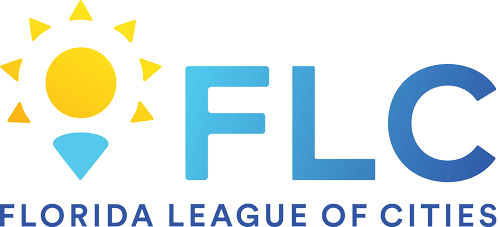Florida cities have options for handling code enforcement that include using a special magistrate, a county court, a code enforcement board or a mix, according to recent speakers at the Florida League of Cities’ (FLC’s) monthly FLCitiesStrong webinar. Click here to access a recording of the webinar.
The decision on which one to use generally is based on a city’s particular situation in areas such as finances, says Jay Daigneault, Attorney and Managing Partner with Trask Daigneault, which is a legal representative for 13 local jurisdiction municipalities and several special districts.
A magistrate assumes greater cost because lawyers are working at hourly rates, Daigneault said. In comparison, a board is made up of volunteers.
A special magistrate can be an attorney or a judge, said Nikki Beavers, Third Vice President of the Florida Association of Code Enforcement (FACE) and a Code Enforcement Officer III at the City of Jacksonville Beach. “When using a special magistrate, the majority of them have training and experience dealing with land use when they’re seeing over a quasi-judicial proceeding,” Beavers said.
There are advantages to using a special magistrate, Beavers said. For example, if you’re using a board, a member might be the neighbor of the person coming before the board. Having several special magistrates offers more flexibility in this area.
Another benefit of using a magistrate is the quality of the process and the results, Daigneault said. Because the special magistrates “are trained in particular ways to identify legal issues, they can be avoided,” he said. These problems also can be avoided through boards, but with a magistrate, the process is often streamlined and cleaner because they’re focused on the evidence, Daigneault said.
Usually the city ordinance spells out the authority to hire a magistrate or appoint a board, but in smaller cities, this process might be governed by the charter, he said.
To determine payment for the special magistrate, look at your procurement ordinances, Daigneault said. You might be required to submit qualifications, for example, he said.
Be in contact with your local bar association to spread the word about hiring, suggested Todd Hoagland, President of FACE and Compliance Manager with the City of Cape Coral.
Since scheduling a special magistrate can be challenging, your city might want to consider having more than one special magistrate, Daigneault said. Lawyers have busy schedules, “and so getting them when you want them is not always possible,” he said. Check your ordinances and charter to see whether alternative special magistrates are permitted, Daigneault advised.
Beavers agrees and pointed out that she lives in a small community. Her City ordinance allows for additional special magistrates if needed. The City works with a law firm that has several attorneys. Hoagland said Cape Coral also uses several special magistrates.
The Florida Association of Code Enforcement (FACE) is for professionals involved in enforcing health, safety and environmental regulations or responsible for enforcing municipal, county, regional, state or federal codes. FACE offers training, certification and the exchange of information. With the John Scott Dailey Florida Institute of Government, FACE has developed a professional development program of four certifications. It also holds an annual conference with breakout sessions for specific positions. Members may ask questions through the website. For more information, go to face-online.org.

